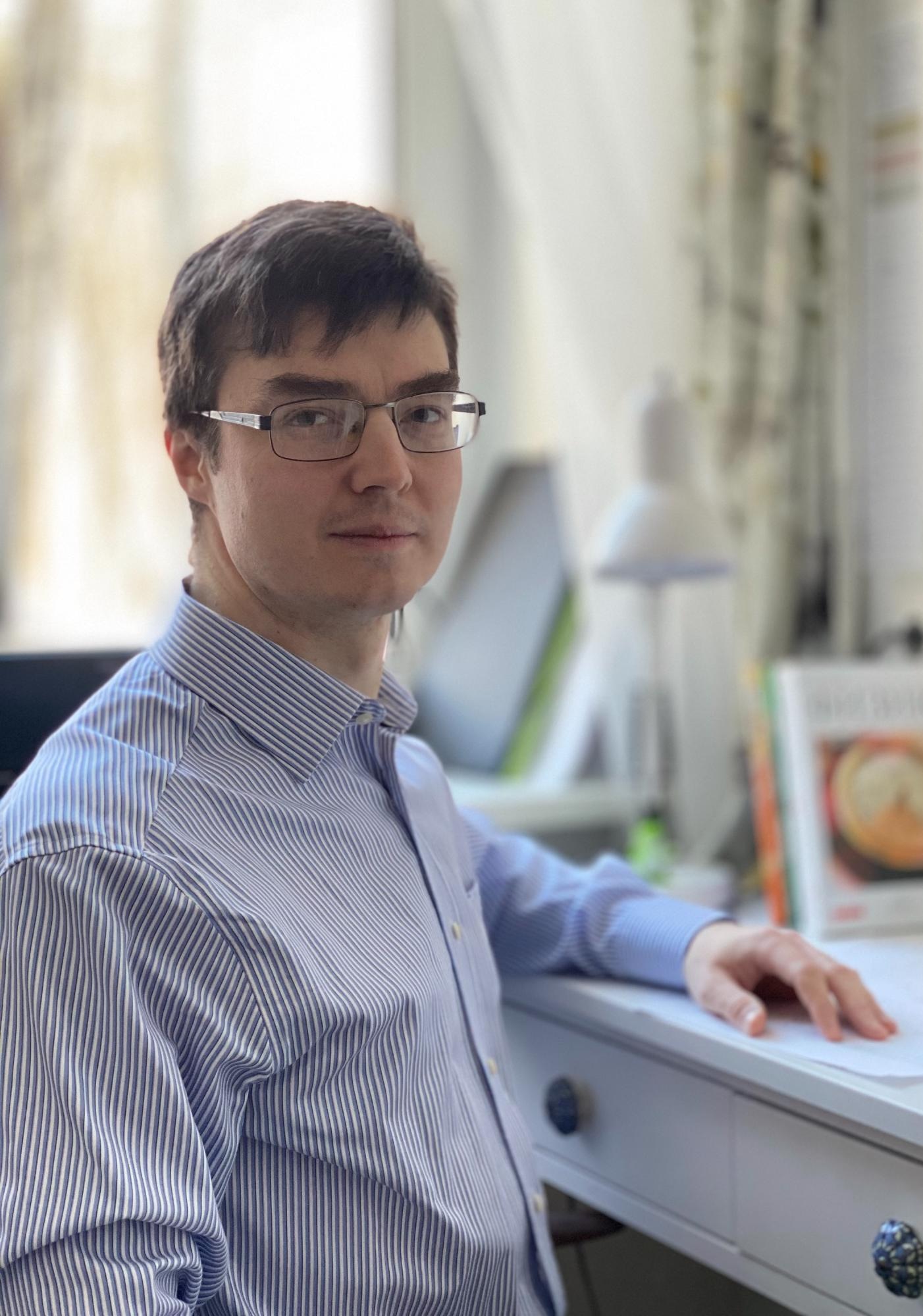Oct 18 2021
Absolute zero − the most appropriate temperature for both quantum experiments and quantum computing − makes it easier to describe a system by relying on a set of fundamental propositions. One of them, the quantum adiabatic theorem, ensures simpler dynamics of quantum systems if external parameters change smoothly enough. Since absolute zero is physically unreachable, broadening the range of theoretical research tools for finite temperatures is a highly topical issue.

Oleg Lychkovskiy. Image Credit: Oleg Lychkovskiy
A team of Russian physicists has made an important step forward in this direction by proving the adiabatic theorem at a finite temperature and identifying quantitative conditions for adiabatic dynamics. Their findings will be of high interest for developers of next-generation quantum devices that require fine-tuning of the properties of quantum superpositions involving hundreds or thousands of elements. This research supported by a Russian Science Foundation (RSF) grant was published in Physical Review A.
Quantum effects can help design ultra-fast computers, ultra-precise measurement instruments, and totally secure communications which often require quite special environments to operate properly. The most comfortable temperature for quantum experiments is absolute zero, or -273.15 degrees Celsius.
At the same time, the quantum superposition principle which allows for some inconceivable things, like the famous Schrödinger’s cat that can be dead and alive at the same time, can work to the full extent of its power. In addition, absolute zero makes the theoretical description of quantum processes a bit easier, providing physicists and engineers with rigorous propositions that help predict the outcomes of quantum experiments and design quantum devices.
The Third Law of Thermodynamics states that absolute zero is unattainable and is just a useful abstraction. In real life, temperatures are always finite and capable of destroying the underlying fragile quantum superpositions, so controlling the fine processes at a finite temperature is the key objective of quantum technologies.
Oleg Lychkovskiy, PhD, Senior Research Scientist, the Skolkovo Institute of Science and Technology (Skoltech), the Moscow Institute of Physics and Technology (MIPT), and Steklov Mathematical Institute of RAS.
A quantum system’s state is defined by a complex mathematical object, the so-called density operator. If the system’s external control parameters, such as electric or magnetic fields, change with time, the operator evolves too.
The complexity of this evolution that lies at the core of the enormous potential of a quantum computer is way beyond the capabilities of modern supercomputers, even for systems containing only hundreds of qubits. Yet, we should learn to “tame” this complexity to be able to create new-generation quantum computers and other quantum devices.
A fairly simple idea relying on adiabatic evolution, one of the fundamental concepts in physics, is that the quantum state could be made somewhat more predictable by varying external parameters in a smooth manner.
The adiabatic theorem – a fundamental achievement of quantum mechanics – was first formulated by Max Born and Vladimir Fock at the dawn of quantum mechanics. The theorem ensures that the evolving quantum state always remains close the so-called instantaneous eigenstate if external parameters change slowly enough.
In a sense, adiabatic evolution is something like taking a class of first-graders on a tour of a museum: you should lead your class carefully and without haste to make sure that by the end of the tour no one’s missing and all the exhibits are intact.
Although the adiabatic theorem has been refined and improved since Born and Fock’s time, its major limitation was that it worked only for the so-called pure states but not all quantum states. This means that it could be applied to systems at absolute zero only but never at finite temperatures.
In our museum example, the tour could go off without a hitch only if the class consisted of well-behaved straight-A pupils, which is hardly possible in real life. Just as there can be no class without naughty kids, there can be no strictly zero temperature.
Researchers from Skoltech, Steklov Mathematical Institute of RAS, and MIPT extended the adiabatic theorem to finite-temperature systems and obtained quantitative conditions that ensure adiabaticity of evolution with a given accuracy. For the sake of illustration, the team applied those conditions to several modeled systems and discovered that in some, the adiabatic dynamics were even more stable at a finite temperature than at absolute zero.
The team’s findings contribute to the collection of theoretical research tools used by quantum scientists and engineers. There is a fairly broad diversity of adiabatic protocols for preparing quantum states with specified properties.
Our findings will help select the optimal operating modes for adiabatic protocols, while taking into account that quantum devices operate at finite temperatures.
Oleg Lychkovskiy, PhD, Senior Research Scientist, the Skolkovo Institute of Science and Technology (Skoltech), the Moscow Institute of Physics and Technology (MIPT), and Steklov Mathematical Institute of RAS.
"The adiabatic quantum computer-based entirely on the adiabatic theorem is perhaps the most popular example. D-Wave Systems Inc. in Canada is currently working on this kind of devices. Also, adiabatic preparation of quantum states is an initial or auxiliary step in other quantum designs, as well as simulations and measurements," Lychkovskiy concludes.